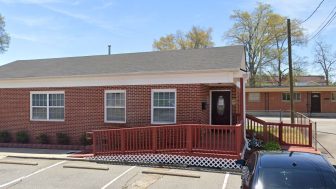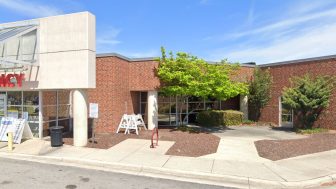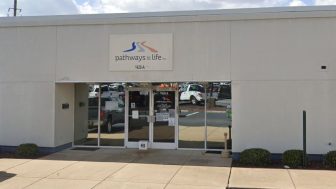Dart Cherry Program
1302 West Ash Street
Goldsboro, NC 27530

About Dart Cherry Program
The DART Center is a residential addiction treatment facility with 300 beds in Goldsboro, North Carolina. They work with male patients who are on parole from prison and transitioning back to the community. The program focuses on cognitive behavior therapy (CBT) and addresses each client's mental, physical, social, legal, educational and addiction needs.
On-site medical Staff at DART include a psychiatrist, doctor, and registered and licensed nurses. Clients have nursing access 8 hours a day, 5 days a week. Staff are on call 24/7 for medical emergencies.
The program uses the "A New Direction" curriculum. This program is proven to help justice-involved men with addiction issues reduce their chance of relapse and crime. This program includes CBT to help clients change unhealthy thought patterns. There’s a participant workbook and videos that residents will work through over seven modules. DART counselors are trained in this program.
They also will help you with case management, referrals, record keeping and treatment planning.
To be eligible for this program, clients must be able to physically and mentally participate in the program which includes being able to complete daily living tasks on their own. They must detox before coming into the program and can’t have a history of violent behavior. Clients who have high medical needs are not accepted. You can’t have an opiate prescription that includes methadone and Suboxone. These medications are forbidden on the premises.
Also, be sure to check their list of items that aren’t allowed on the facility. This includes cell phones, computers, and reading material that aren’t related to recovery or personal faith. No OTC meds are allowed.
Addiction Treatment Programs
When individuals participate in a young adult program in North Carolina, they feel more at ease in a setting that is age-appropriate. Activities, therapies, and aesthetics are all tailored for this age group, so participants can feel comfortable and are more likely to complete the program.
An adult program in North Carolina typically combines individual and group counseling, medical treatment, and various other therapies to treat substance use disorders. Treatment can take place in an inpatient or outpatient setting.
Alcohol rehab in North Carolina is a course of treatments that helps participants overcome alcohol dependency. Treatments address physical, mental, and emotional aspects of substance use disorder and help the individual develop healthy habits for long-term recovery.
Men’s rehab in North Carolina offers customized treatment for men. These programs provide personalized treatment that is designed with the unique needs of men in mind.
To overcome opioid addiction, attend opioid rehab in North Carolina. Treatment takes place in inpatient or outpatient care, using a variety of therapies, medications, and other helpful interventions. Length of treatment caries, typically lasting 30, 60, or 90 days.
Many therapists use cognitive behavioral therapy in North Carolina to treat substance use disorders. This goal-oriented method addresses maladaptive thinking and related beliefs that affect behaviors and can lead to addiction.
There are many types of drug rehab in North Carolina. To receive treatment for addiction, you can choose from many inpatient and outpatient programs. Often, participants start with detox and work through a full continuum of care that continues with ongoing support for long-term recovery.
Assertive Community Treatment (ACT) is an integrative, community-based care strategy designed to address the needs of persons with severe and/or complex mental illness or behavioral disorders. ACT is typically provided by a multidisciplinary team of medical and mental health care providers, social workers, therapists, and other specialists, including addiction recovery professionals. These services are frequently provided in the home and community to clients in crisis, those who are clinically unstable, and those who are unable or unwilling to travel to a hospital or clinic for in-person treatment.
Levels of Care
When you choose inpatient drug rehab in North Carolina, you’ll live at a rehab facility for 28 to 90 days, depending on the program. Typical methods of treatment include group and individual therapy and family counseling.
Recovery journeys often begin with intervention services in North Carolina. This treatment tool provides key support in planning and facilitating an effective intervention. Intervention specialists can also provide resources to develop treatment plans and guide families through the admission process.
Nearly all drug rehabs in North Carolina begin with a detox program. When this process is complete, all addictive substances will be purged from your body. You can then move on to the next steps of drug rehab in North Carolina.



